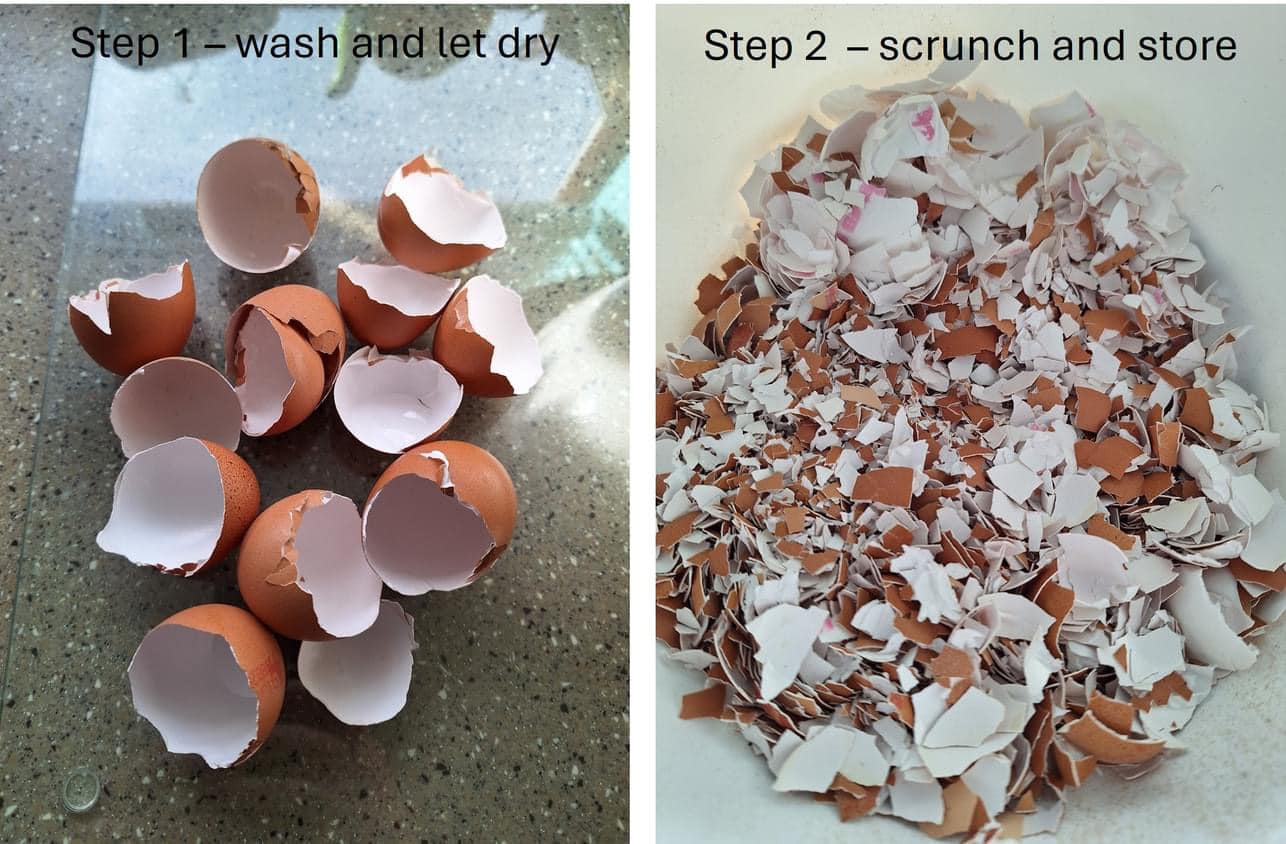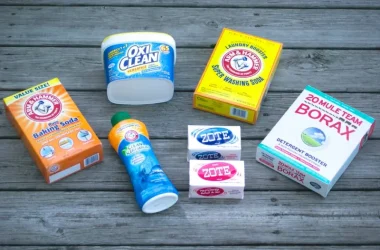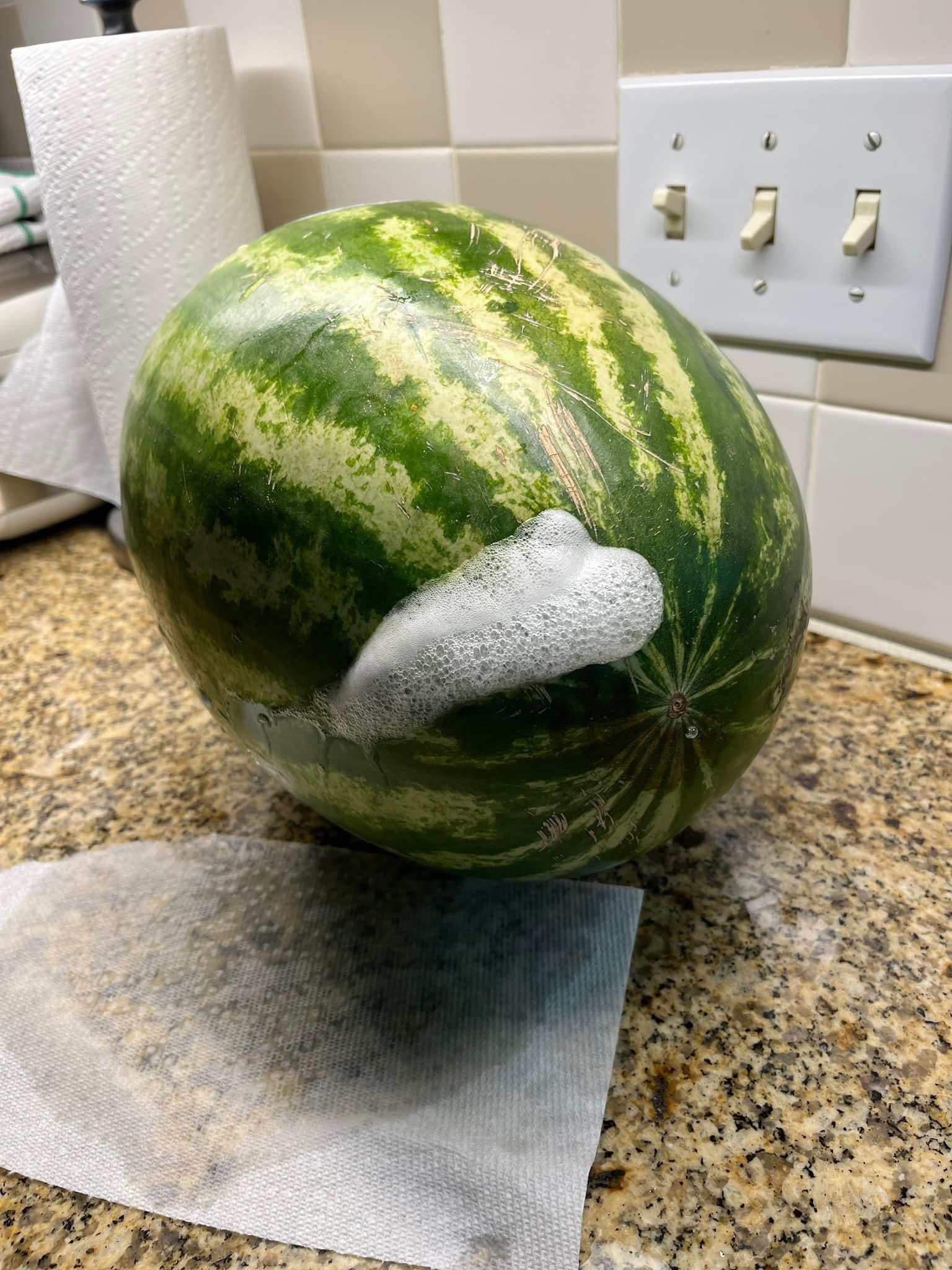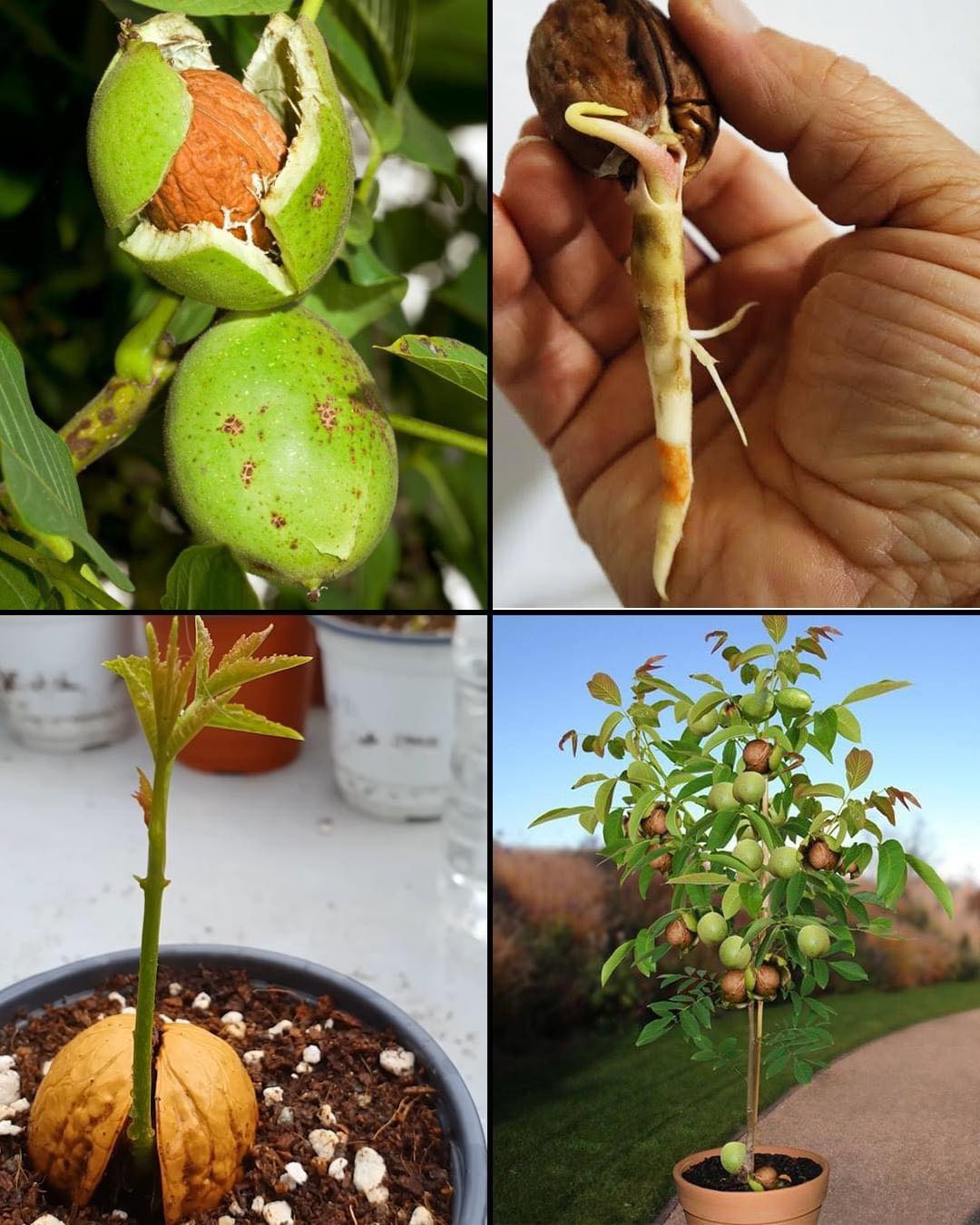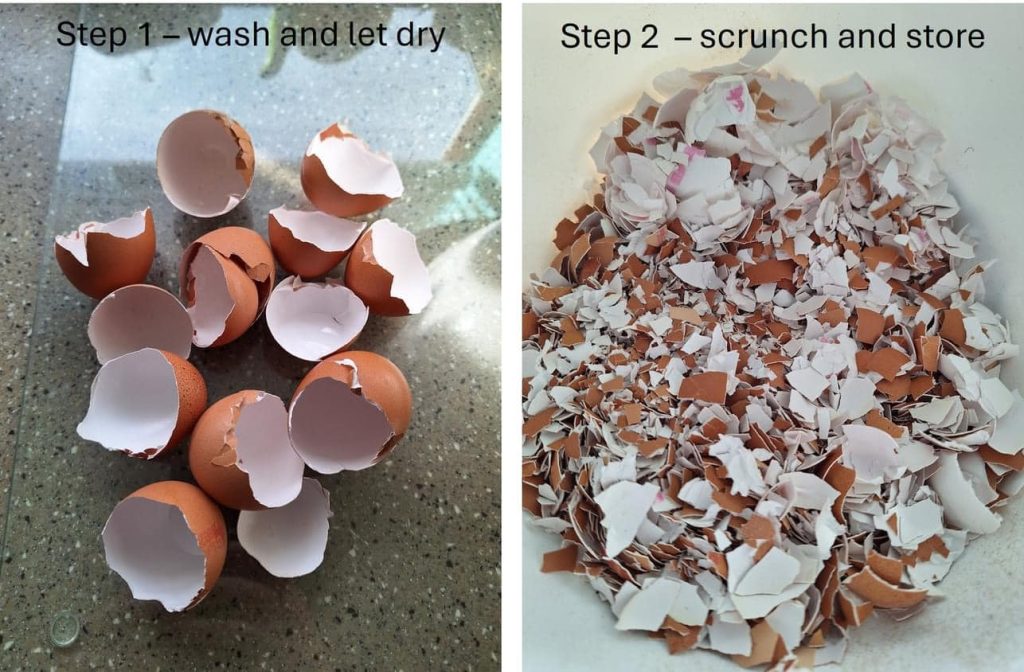
Eggshells, primarily composed of calcium carbonate, can be a valuable resource for providing essential nutrients to your plants. In this article, we will explore the benefits of using eggshells as fertilizer and provide step-by-step instructions on how to make and use eggshell fertilizer effectively.
1. Understanding Eggshell Fertilizer
Eggshell fertilizer is a natural and eco-friendly alternative that can provide calcium and other essential minerals to your plants. The calcium in eggshells helps combat blossom end rot, a common issue in plants like tomatoes. Additionally, eggshells can lower the pH level of the soil, creating a more alkaline environment preferred by many crop-producing plants.
2. Making Eggshell Fertilizer
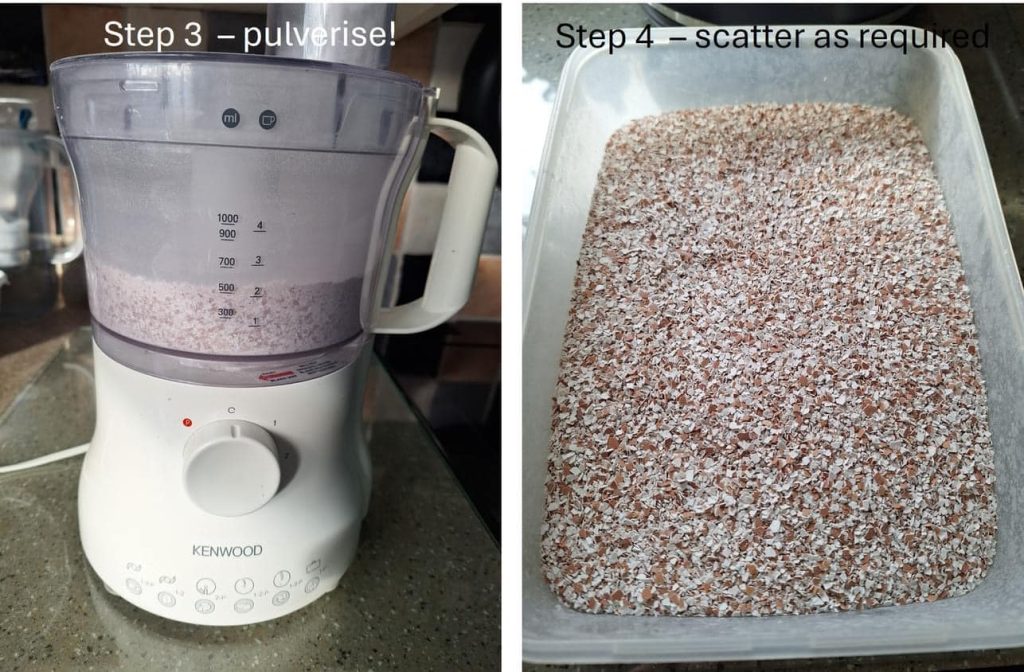
To create eggshell fertilizer, follow these simple steps:
- Rinse the eggshells to remove any residue.
- Dry the eggshells by leaving them on the counter, freezing them overnight, or baking them in a 200-degree oven for about 20 minutes.
- Crush the eggshells into small pieces using your hands, a rolling pin, a mortar and pestle, a food processor, or a coffee grinder. Aim for a crumbled or powdered consistency.
- Add 1-2 tablespoons of crushed or powdered eggshell fertilizer to compost or planting holes, ensuring a balanced application without creating a layer at the roots.
- Alternatively, incorporate eggshell-laced compost into the topsoil or lightly spread the crushed shells around the base of existing plants.
3. Plants that Benefit from Eggshells
While eggshells can benefit various plants, they are particularly advantageous for:
- Tomatoes: Help combat blossom end rot and improve overall plant health.
- Eggplant, peppers, broccoli, cauliflower, and leafy greens: Benefit from the additional calcium and alkaline soil environment created by eggshells.
- Roses and flowering plants: The calcium in eggshells promotes stronger stems and vibrant blooms.
- Houseplants: Incorporating eggshell fertilizer into the potting mix can provide a slow-release source of calcium over time.
4. Precautions and Plants to Avoid
While eggshell fertilizer is beneficial for many plants, it is not suitable for all. Avoid using eggshells on plants that prefer acidic soil, such as blueberries, as well as acid-loving plants like mountain laurel, Pieris, and azaleas. To determine the soil’s acidity level accurately, consider getting a soil test from professional labs, university agricultural departments, or local extensions.
5. Other Uses of Eggshells
Apart from using eggshells as fertilizer, they have other practical applications in gardening:
- Pest control: Some gardeners believe that finely crushed eggshells can deter slugs due to their sharp edges. However, effectiveness may vary.
- Seed holders: Use cleaned eggshell halves as seed starters, providing a natural and organic container for young plants.
- Vermicomposting: Crushed or powdered eggshells can be added to vermicompost bins to increase calcium levels and improve worm activity.
- Compost accelerator: Adding crushed eggshells to your compost pile can help speed up the decomposition process and add valuable nutrients.
6. Frequently Asked Questions about Eggshell Fertilizer:
Q: Can I use eggshells directly in the soil without crushing them?
A: It is recommended to crush or powder the eggshells to enhance their effectiveness. Crushed eggshells break down more easily, releasing their nutrients into the soil.
Q: How long does it take for eggshells to decompose in the soil?
A: Eggshells can take several months to fully decompose in the soil, gradually releasing their nutrients. It is best to incorporate them into the soil well before planting.
Q: Can I use eggshells from boiled eggs?
A: Yes, you can use eggshells from boiled eggs. However, make sure to clean and dry them thoroughly before crushing and using them as fertilizer.
Q: Can I use eggshells from any type of eggs?
A: Yes, you can use eggshells from any type of egg, including chicken, duck, or quail eggs. The nutrient content remains similar across different types of eggshells.
Q: Can I store crushed eggshells for future use?
A: Yes, you can store crushed eggshells in a dry and airtight container for future use. This allows you to have a ready supply of eggshell fertilizer whenever needed.
Conclusion
Eggshells offer a cost-effective and environmentally friendly solution for fertilizing your plants. By converting eggshells into a nutrient-rich fertilizer, you can provide calcium and other essential minerals to promote plant growth, combat blossom end rot, and create a more alkaline soil environment. Follow the simple steps outlined in this article to harness the benefits of eggshell fertilizer and watch your plants thrive.
Remember to apply eggshell fertilizer in moderation, typically twice a year during the fall and spring, as it takes time for the shells to decompose and release their nutrients. Enjoy the benefits of this natural fertilizer and witness the positive impact it has on your garden or indoor plants.
If you have any further questions or need additional information, feel free to ask. Happy gardening!
